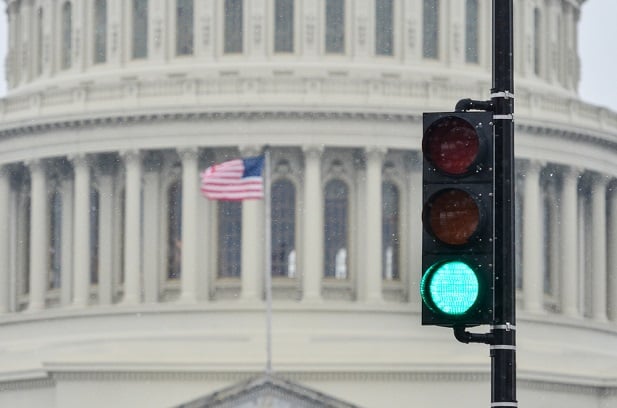 The SECURE Act has been billed as the largest retirement bill since passage of the Pension Protection Act in 2006. (Photo: Shutterstock)
The SECURE Act has been billed as the largest retirement bill since passage of the Pension Protection Act in 2006. (Photo: Shutterstock)
Update: Our sources were correct and the SECURE Act has been attached to the spending package.
Several ERISA attorneys and representatives of employer and retirement industry trade groups are reporting that, in all likelihood, the Setting Every Community Up For Retirement Enhancement Act or SECURE Act will be part of the larger spending bill to be introduced into the House of Representatives later today.
The SECURE Act has been billed as the largest retirement bill since passage of the Pension Protection Act in 2006.
It passed out of the House by a 417 to 3 vote in May. It failed to pass the Senate by unanimous consent in the summer and fall, due to several holds on the bill related to non-retirement provisions.
The bill includes a provision that would relax regulation of Open Multiple Employer Plans, new tax incentives for small businesses to sponsor retirement plans, a long-awaited annuity selection safe harbor for sponsors of retirement plans, the extension of the required minimum distribution age for qualified retirement plans, and the removal of the age cap on contributions to traditional IRAs.
Components of the bill have been pushed by retirement plan providers and insurance companies for well over a decade. In 2016, a version of the bill, then titled the Retirement Enhancement and Savings Act, passed out of the Senate Finance Committee by a unanimous vote.
Over the years, not even the progressive wing of the Democratic Party has pushed back against the provisions of the bill.
Some in the financial services industry have, however.
According to a Joint Committee on Taxation score of the bill before it passed out of the House, the SECURE Act adds $389 million to the federal budget over 10 years.
Its costs are mostly offset by an elimination of the so-called Stretch IRA. Under SECURE, distributions from inherited retirement accounts will have to be completed within 10 years, with the exception of accounts bequeathed to spouses, children, or disabled beneficiaries.
That has raised concerns among wealth planners, and drew criticism earlier this year from the Wall Street Journal Editorial Board.
And critics of annuities have also taken issue with the provision that could make guaranteed income products more common in 401(k) and other workplace retirement plans.
But the critics have been quiet relative to SECURE's chorus of support.
"We're hearing it's in but still need to confirm that with release of the bill's text," said Geoff Manville, principal, government relations at Mercer.
The spending bill, reportedly to be near $1.4 trillion, will be voted on by Tuesday or Wednesday in the House, and then sent to the Senate.
"I don't expect the two appropriations packages to hit snags given the deadline for a government shutdown and lawmakers' holiday plans," added Manville.
Still, nothing is over until it's over, implied Senate Finance Chairman Charles Grassley. "What I think you need to understand is I've been on the phone Friday, Saturday and Sunday with the people that are involved, including people in the administration, and it's just a lot of negotiation going on," said Grassley, quoted in Politico.
Complete your profile to continue reading and get FREE access to BenefitsPRO, part of your ALM digital membership.
Your access to unlimited BenefitsPRO content isn’t changing.
Once you are an ALM digital member, you’ll receive:
- Breaking benefits news and analysis, on-site and via our newsletters and custom alerts
- Educational webcasts, white papers, and ebooks from industry thought leaders
- Critical converage of the property casualty insurance and financial advisory markets on our other ALM sites, PropertyCasualty360 and ThinkAdvisor
Already have an account? Sign In Now
© 2024 ALM Global, LLC, All Rights Reserved. Request academic re-use from www.copyright.com. All other uses, submit a request to [email protected]. For more information visit Asset & Logo Licensing.








